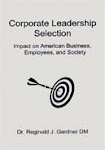21st Century Leadership in Action – Part II
As a faculty member of the University of Phoenix, I had the distinct honor of being on stage at the 2010 Commencement Ceremony. The commencement was held in Phoenix, AZ on June 25th & 26th, and the keynote address was delivered by former U.S. Secretary of State, Dr. Condoleeza Rice. Whenever a keynote address is delivered, members of the audience will have distinct memories (and selective hearing) of what they hold to be valuable. This blog entry will highlight my interpretations – strictly from a leadership perspective.
Leadership Traits
First, and most important, Dr. Condoleeza Rice displayed the charisma, ingenuity, and poise we expect from a head of state. Dr. Rice clearly articulated a shared vision of U.S. diplomacy and global responsibility as a major player on the international scene. Whether respected, revered, or reviled, the U.S. has the potential for influence (i.e. military, political, financial, and social) in numerous countries throughout the world.
Dr. Rice spoke of her personal development and training in international studies at the University of Denver, which helped prepare her for her role as Secretary of State. She reminisced about that development and training as she recalled her meeting with Russian leader, Mikhail Gorbachev. As a global leader, developing confidence and trust is an important characteristic just like in the corporate business environment. During her time as Secretary of State, Dr. Rice was successful in conducting extremely crucial negotiations and agreements with foreign leaders built on trust and ethical standards.
A Message to the Graduating Class
Second, Dr. Rice specifically detailed expectations of college graduates. I did observe that other speakers such as the University Phoenix President, Dr. Bill Pepicello, mention the commencement ceremony does not represent the end of the journey, but the beginning. Dr. Rice emphasized the fact that as college educated members of society, we must reject/refute the negative perceptions that exist around leadership values, beliefs, attitudes, and intent.
As a lifelong learner and faculty practitioner adept in conducting research, I found this statement from Dr. Rice very inspirational. The degree of rhetoric and fallacies we encounter on a daily basis has cluttered our collective critical thinking process, and deterred logical, rational decision making. Technological advancements have also contributed to how we access and interpret information. It is not uncommon to read negative and inaccurate comments made on news company’s front page websites. As an example, sites such as MSNBC.com, CNN.com, Yahoo.com and others will report a news story and provide the opportunity for readers to reply and post their thoughts. I might add the spelling, punctuation, and grammar of some of those respondents also leaves a lot to be desired. Nonetheless, conducting research and viewing any topic from the perspective of both sides will increase the probability of getting truthful and accurate details.
In her address, Dr. Rice also discussed what she viewed as overcoming obstacles. She briefly discussed her early age desire of becoming a renowned pianist. After meeting much younger, more talented pianists, she realized it was time to resort to “Plan B” and a change of career aspirations. In the real-life business environment, we are constantly faced with unforeseen and unexpected events. Sometimes, our success is dependent upon how quickly we identify and alter our course of action. 21st Century leaders who do not readily react to unforeseen and unexpected changes in their environment stand the risk of failure.
Finally, Dr. Rice exhorted the class to also “reach back and help others because someone reached back to help you.” I found this part of the keynote address inspiring as well. It is critical for business leaders to establish and maintain strategic alliances. Building such relationships enables the organization to realize increased business opportunities, which otherwise may not have been possible. Reaching back to help others can be a mutual benefit. On the one hand, an established and successful business leader can help others develop and become future successful business leaders. On the other hand, the mentor can simultaneously work on their skills in developing and grooming future leaders.
Concluding Thoughts
There were other enlightening speakers involved in the commencement. Mr. Neil Bush (son of the 41st President, George Bush, and brother of the 43rd President, George W. Bush) spoke on the Points of Light Foundation, and its importance in improving social literacy. Mr. Randy Jackson (of American Idol fame) also inspired the graduating class by quoting the Serenity Prayer (“God, grant me the serenity to accept the things I can not change; the courage to change the things I can; and the wisdom to know the difference.”).
One final comment that stuck out from Dr. Rice’s address was in her opening remarks. She mentioned that she has fond memories of her own commencement ceremony at the University of Denver. She could remember sharing the day’s events with family and friends. She can also remember receiving her degree in International Studies. However, she could not remember ANY of the comments from the keynote speaker. Dr. Rice then stated that the members of this class would not remember the comments of today’s keynote speaker either. This is one time I sincerely hope and truly believe our beloved former U.S. Secretary of State is wrong.
More information on the leadership traits can be reviewed in Corporate Leadership Selection: Impact on American Business, Employees, and Society (Authorhouse Publishing).
Feedback to this blog entry is always welcome.
Subscribe to:
Post Comments (Atom)


I very much like Condie Rice. Thank you for sharing your memories of her comments...
ReplyDeletepeace, Wayne